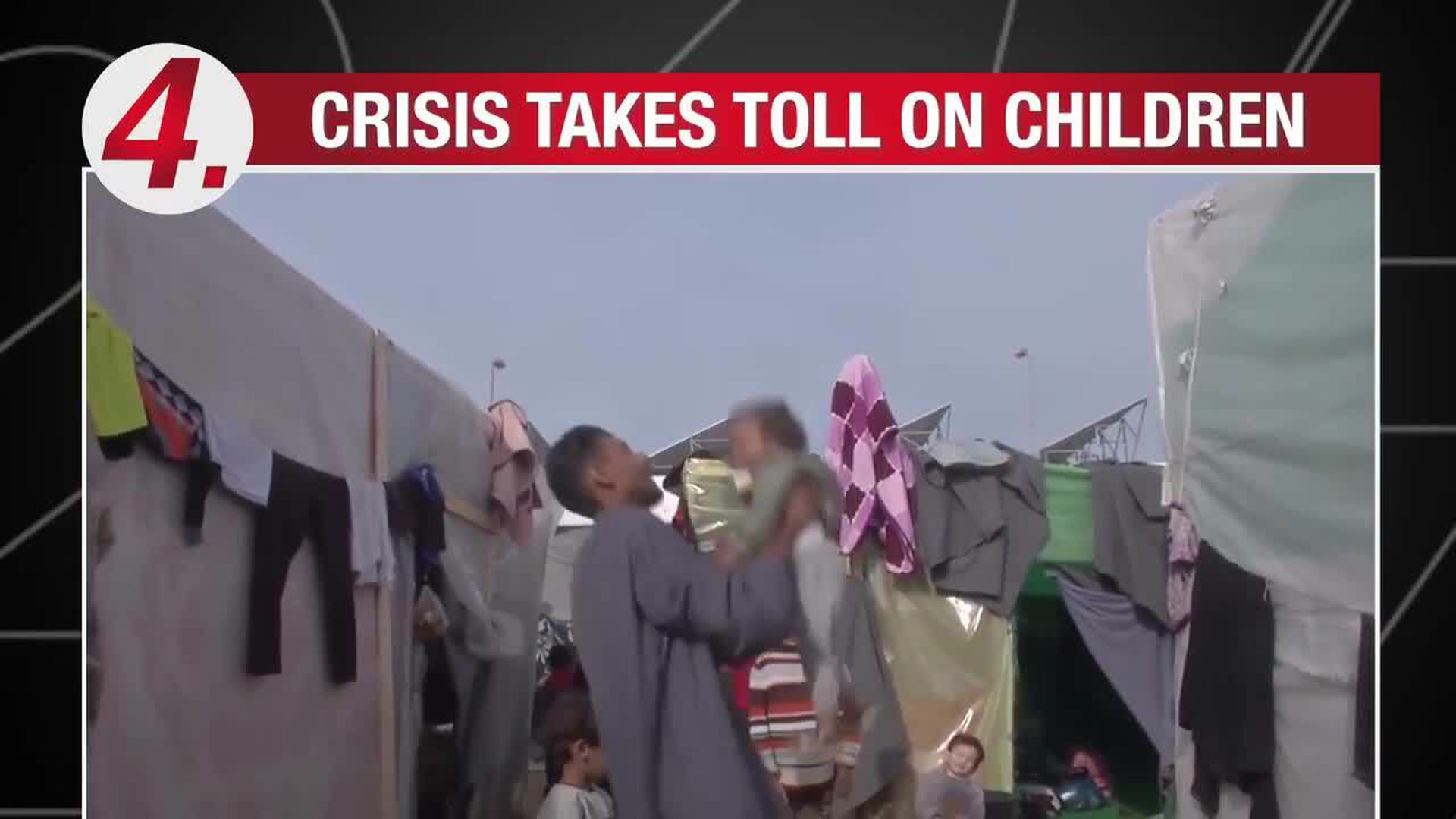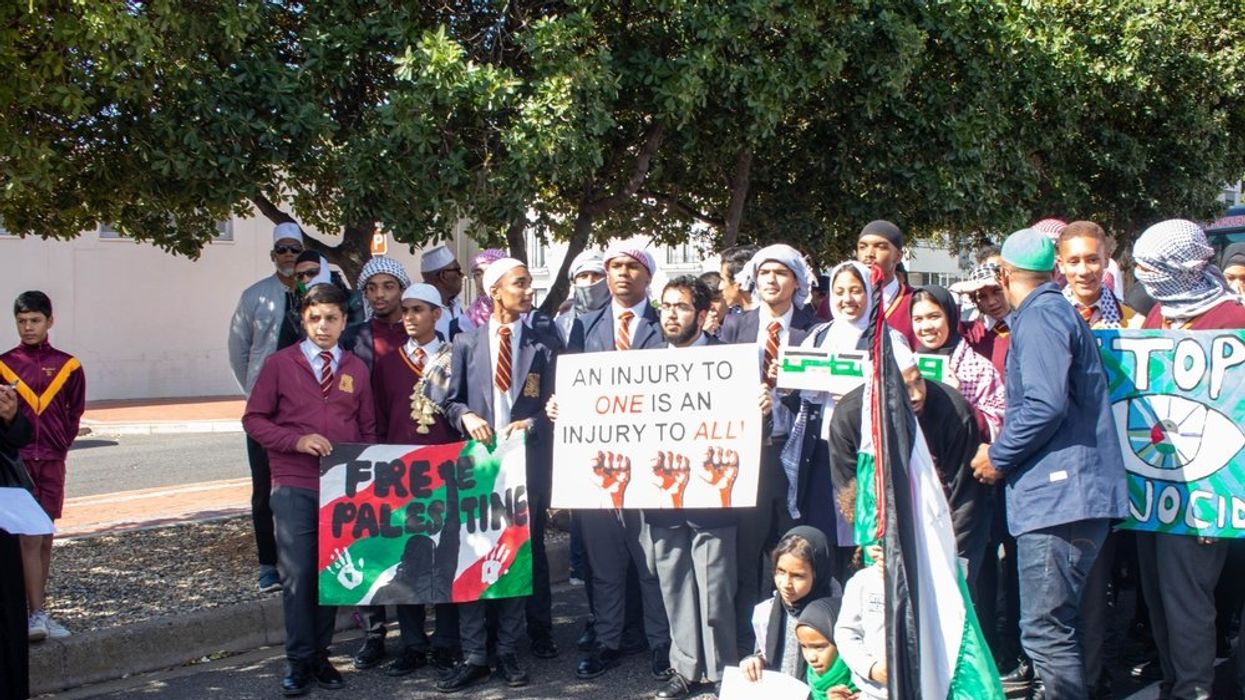(CNN) — South Africa accused Israel of genocide in an unprecedented case at the United Nations’ top court, saying the country’s leadership was “intent on destroying the Palestinians in Gaza” and calling for the court to order a halt to Israel’s military campaign in the enclave.
On the first of two days of hearings at the International Court of Justice (ICJ), South Africa on Thursday argued that Israel’s air and ground assaults on Gaza were intended to “bring about the destruction” of its Palestinian population, and that comments made by Israeli leaders signalled their “genocidal intent.”
Israel declared war on Hamas after the militant group’s murderous rampage on October 7, when more than 1,200 people were killed and 240 hostages were taken back to Gaza. South Africa condemned Hamas’ attacks but said “nothing” could justify Israel’s response, which has killed more than 23,000 people in Gaza.
“The point is not simply that Israel is acting disproportionately. The point is that the prohibition on genocide is an absolute,” said Vaughan Lowe, one of the lawyers representing South Africa. “Nothing can ever justify genocide.”
Israel is scheduled to deliver its response in court on Friday.
The ICJ, based in The Hague in the Netherlands, was set up in June 1945 and hears cases brought by states accusing others of violating their UN treaty obligations. South Africa and Israel are signatories to the 1948 Genocide Convention, meaning they are obliged not to commit genocide and to prevent and punish it.
Experts say it is the first time that the Jewish state is being tried under the Genocide Convention, which was drawn up after the Second World War in light of the atrocities committed against the Jewish people during the Holocaust.
In an 84-page filing to the ICJ, South Africa argued that Israel is committing genocide by killing Palestinians in Gaza, causing serious mental and bodily harm, forced evacuation, widespread hunger, and by creating conditions “calculated to bring about their physical destruction.” It also accused Israel of failing to stem incitement to genocide in the public pronouncements of its officials.
During three hours of oral argument, lawyers representing South Africa asked the ICJ to order a suspension of Israel’s campaign in Gaza to protect the rights of Palestinians in Gaza “from imminent and irreparable loss.”
Such “provisional measures,” as they are known, function as a kind of restraining order to stop a dispute from escalating while the court considers the full merits of the case, which could take years. For provisional measures the court need only decide if prima facie, or “at first glance,” the acts complained of could fall foul of the genocide convention.
“It is not necessary for the court to come to a final view on the question of whether Israel’s conduct constitutes genocide. It is necessary to establish only whether at least some of the acts alleged are capable of falling within the provisions of the convention,” argued Adila Hassim, one of the lawyers representing South Africa.
In its opening remarks, South Africa said it “places Israel’s genocidal acts and omissions within the broader context of Israel’s 25-year apartheid, 56-year occupation, and 16-year siege imposed on the Gaza Strip.”
South Africa operated under a system of apartheid from 1948 until the early 1990s, and its governing African National Congress has long championed the Palestinian cause.
Ahead of the hearing South Africa was accused by Israel and others of hypocrisy for not also bringing a charge of genocide against Hamas. South Africa explained during the hearing that “Hamas is not a state and cannot be a party to the genocide convention,” and said the group would be accountable to “other bodies” such as the International Criminal Court, which tries individuals – rather than states – for crimes including war crimes and crimes against humanity.
The Organization of Islamic Cooperation, a grouping of 57 Muslim countries, as well as Jordan, Turkey and Malaysia have so far backed South Africa’s case, while Israel’s allies have fiercely opposed it.
‘A pattern of genocidal conduct’
South Africa presented widely reported evidence that it said showed a “systematic pattern of conduct” by Israel “from which genocide can be inferred.” The UN defines genocide as an act “committed with intent to destroy, in whole or in part, a national, ethnical, racial or religious group.”
“South Africa believes that the publicly available evidence of the scale of the destruction resulting from the bombardment of Gaza, and the deliberate restriction of food, water, medicines and electricity available to the population of Gaza, demonstrates that the government of Israel… is intent on destroying the Palestinians in Gaza as a group, and is doing nothing to prevent or punish the actions of others who support that aim,” said Lowe.
Citing previous CNN reporting that nearly half of the air-to-ground munitions that Israel has used in Gaza in its war with Hamas have been unguided “dumb bombs,” Vaughan said “it’s no use Israel saying it does whatever it can to minimize the deaths of innocent” Palestinians.
“The use of 2,000-pound bunker-busting bombs and dumb bombs in residential areas, and the relentless bombardment of Gaza… tell another story.”
South Africa argued that the evacuation order issued by Israel to residents of northern Gaza on October 13 – the first of its kind – was itself “genocidal,” since “it required immediate movement… while no humanitarian assistance was permitted.” Israel said at the time that, by notifying the civilian population of a planned military attack, it was complying with international law.
Court risks ‘treating Palestinians differently’
As well as detailing the actions of the Israeli military, South Africa also cited public pronouncements by Israeli officials it alleged were genocidal in nature.
“Israel’s political leaders, military commanders, and persons holding official positions, have systematically and in explicit terms declared their genocidal intent,” argued Tembeka Ngcukaitobi.
Ngcukaitobi cited Israeli Prime Minister Benjamin Netanyahu’s address to Israeli forces on October 28, ahead of the imminent launch of its ground offensive in Gaza.
“Remember what Amalek did to you,” Netanyahu said in his address, which Ngcukaitobi told the court “refers to a Biblical command by God to Saul for the retaliatory destruction of an entire group of people known as the Amalekites.”
There is precedent for the court to grant the kind of emergency orders South Africa is calling for.
In January 2020, the court granted The Gambia’s request for provisional measures to protect the Rohingya people remaining in Myanmar from genocide. The Court has granted similar measures to protect Ukrainians from ongoing Russian aggression, and Bosnians during the Balkan Wars in the 1990s.
Max du Plessis, another of South Africa’s lawyers, said if the court failed to do so it risked treating Palestinians “differently, as less worthy of protection than others.”
Countries are unable to appeal the rulings but the ICJ has no way of enforcing them. A 2022 report by Human Rights Watch found continued abuses against the Rohingya remaining in Myanmar, despite the provisional measures. Similarly, despite the court in March 2022 ordering Russia to immediately suspend its invasion of Ukraine, Moscow’s war rages on nearly two years later.
While an ICJ ruling against Israel may fail to constrain its military action, it could land a serious blow to Israel’s international reputation.
The-CNN-Wire
™ & © 2024 Cable News Network, Inc., a Warner Bros. Discovery Company. All rights reserved.

Video Source: Advocate Channel
- UN Sounds Alarm on 'Risk of Genocide' Against Palestinians ›
- South Africa files genocide case against Israel at International Court of Justice ›
- Nearly Half of All Israeli Bombs Dropped on Gaza are Imprecise ‘Dumb Bombs' ›
- More than 10 children are losing legs in Gaza every day: report ›
- Top UN court rules Israel must take ‘all measures’ to prevent genocide in Gaza ›

















































